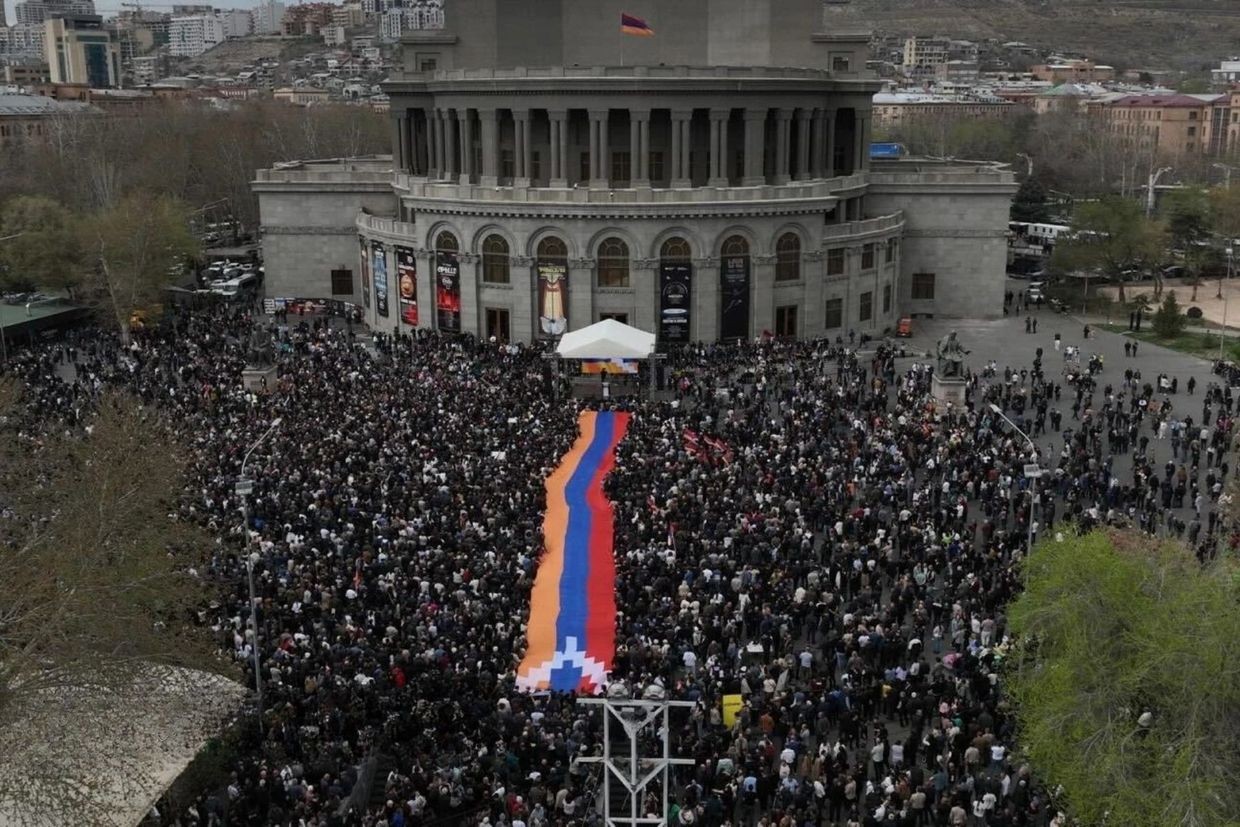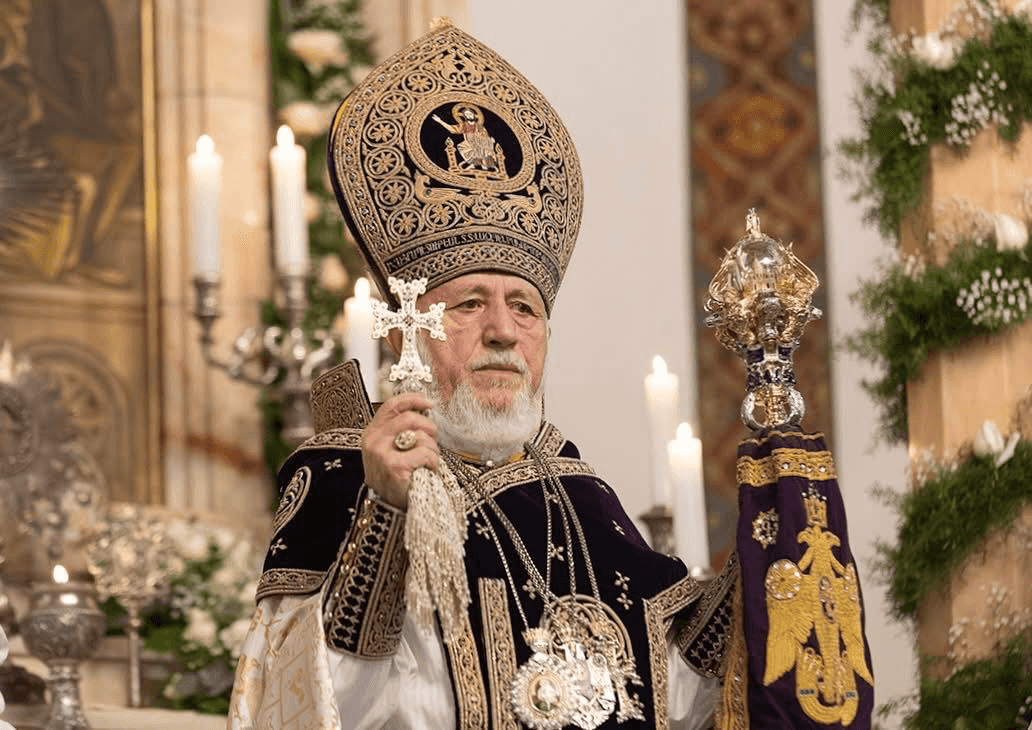
Since 29 March, Nagorno-Karabakh Armenians have been holding a series of protests in Yerevan. Chief among their demands is that social support provided to the refugees ‘must be maintained’ until the issue of the housing of displaced families is resolved.
The first major event was a rally held in Yerevan’s Freedom Square, attended by Nagorno-Karabakh Armenians and their supporters.
During the rally, the demonstrators warned against ‘disastrous consequences’ relating to an aid cut adopted by the government in November 2024.
According to that decision, the Armenian government modified the social assistance programme offered to displaced Nagorno-Karabakh Armenians. The programme was launched in October 2023, immediately after the exodus of virtually the entire Armenian population of Nagorno-Karabakh following the Azerbaijani final offensive into the region, which occurred after it was placed under a nine-month blockade.
The authorities made a decision to reduce the beneficiary groups, mainly excluding working age people, as well as gradually reducing monthly assistance starting from 1 April from ֏50,000 ($130) to ֏30,000 ($80).
The authorities stated that the money would be redirected to a state housing assistance programme, which has been condemned by some of its intended beneficiaries, who have accused the government of refusing to consider their needs.
While the housing programme is not yet open for all beneficiary groups, the assistance cuts would affect the refugees, considering that said assistance was mainly directed to cover rental costs.

On the same day of the rally, some of the protesters also launched a sit-in strike in Freedom Square, planned to last for a week, presenting a 12-point demand to the Armenian authorities.
Along with the social issues, they also demanded that the government ‘proactively, consistently, and responsibly implement all possible legal, political, and diplomatic steps to ensure’ their collection and safe return, the release of the Armenian prisoners in Azerbaijan, as well as to stop the hate speech coming from the government and the ruling Civil Contract party MPs.
The day after the rally, a group of Nagorno-Karabakh women, together with their children, hung laundry near the government residence, where high-ranking officials, including Prime Minister Nikol Pashinyan, live.

Mariam Abrahamyan, an organiser of the protest, told CivilNet that hanging laundry was a symbolic move, trying to convey to the government that ‘soon the people of Artsakh will find themselves in a situation where they will not even have the opportunity to hang their laundry’.
On Monday, Nagorno-Karabakh Armenians held another rally near the Ministry of Labour and Social Affairs, with the aim of presenting their concerns and possible solutions regarding social programmes.
As part of the protest, they left notes written with chalk on the entrance of the ministry, saying that stopping the assistance programme is equivalent to ‘forced emigration’.
On the same day in parliament, Narek Mkrtchyan, the Labour and Social Minister, claimed that there was no ‘reasonable proposal’ that they ‘have not taken into account’. Mkrtchyan also urged them to apply to the housing programme.
Previously, in late March, Mkrtchyan stated that by keeping the Nagorno-Karabakh Armenians ‘constantly dependent’ on the aid directed to the rental costs coverage, ‘we also create an artificial obstacle for the people to be quickly and intensively included in our long-term support programmes’.











